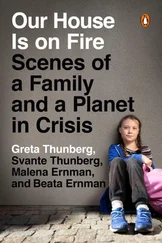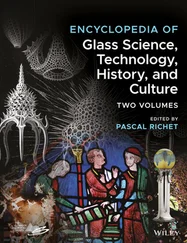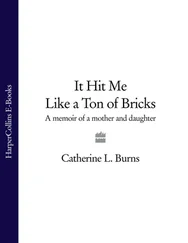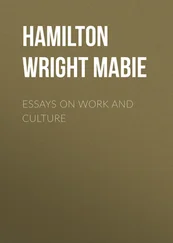When my turn came, I proudly announced, “Fifty minus twenty.” The teacher gushed, and I received two pieces of candy for my foray into subtraction, a skill we’d learned only days before. A few moments later, while I beamed over my brilliance, another student announced, “Ten times three.” I had no idea what that even meant. Times ? Who was this guy?
The teacher was even more impressed, and my competitor triumphantly collected not two but three pieces of candy. The teacher spoke briefly of multiplication and asked if anyone else knew such a thing existed. None of us raised a hand. For my part, I was crushed. I returned home and burst into tears. I was certain my ignorance was rooted in some failure of character. I just felt stupid .
It wasn’t my fault that until that day I had never heard the word “multiplication.” It wasn’t something I’d learned in school, and my family didn’t sit around and work on math problems. But to a little kid who wanted to do well in school, it was a crushing defeat. In my immature brain, I didn’t understand the difference between intelligence and knowledge. So I assumed I was an idiot.
I may not have known multiplication that day, but when I came home and told Papaw about my heartbreak, he turned it into triumph. I learned multiplication and division before dinner. And for two years after that, my grandfather and I would practice increasingly complex math once a week, with an ice cream reward for solid performance. I would beat myself up when I didn’t understand a concept, and storm off, defeated. But after I’d pout for a few minutes, Papaw was always ready to go again. Mom was never much of a math person, but she took me to the public library before I could read, got me a library card, showed me how to use it, and always made sure I had access to kids’ books at home.
In other words, despite all of the environmental pressures from my neighborhood and community, I received a different message at home. And that just might have saved me.
I assume I’m not alone in having few memories from before I was six or seven. I know that I was four when I climbed on top of the dining room table in our small apartment, announced that I was the Incredible Hulk, and dove headfirst into the wall to prove that I was stronger than any building. (I was wrong.)
I remember being smuggled into the hospital to see Uncle Teaberry. I remember sitting on Mamaw Blanton’s lap as she read Bible stories aloud before the sun came up, and I remember stroking the whiskers on her chin and wondering whether God gave all old women facial hair. I remember explaining to Ms. Hydorne in the holler that my name was “J.D., like jay-dot-dee-dot.” I remember watching Joe Montana lead a TD-winning drive in the Super Bowl against the hometown Bengals. And I remember the early September day in kindergarten when Mom and Lindsay picked me up from school and told me that I’d never see my dad again. He was giving me up for adoption, they said. It was the saddest I had ever felt.
My father, Don Bowman, was Mom’s second husband. Mom and Dad married in 1983 and split up around the time I started walking. Mom remarried a couple years after the divorce. Dad gave me up for adoption when I was six. After the adoption, he became kind of a phantom for the next six years. I had few memories of life with him. I knew that he loved Kentucky, its beautiful mountains, and its rolling green horse country. He drank RC Cola and had a clear Southern accent. He drank, but he stopped after he converted to Pentecostal Christianity. I always felt loved when I spent time with him, which was why I found it so shocking that he “didn’t want me anymore,” as Mom and Mamaw told me. He had a new wife, with two small children, and I’d been replaced.
Bob Hamel, my stepdad and eventual adoptive father, was a good guy in that he treated Lindsay and me kindly. Mamaw didn’t care much for him. “He’s a toothless fucking retard,” she’d tell Mom, I suspect for reasons of class and culture: Mamaw had done everything in her power to be better than the circumstances of her birth. Though she was hardly rich, she wanted her kids to get an education, obtain white-collar work, and marry well-groomed middle-class folks—people, in other words, who were nothing like Mamaw and Papaw. Bob, however, was a walking hillbilly stereotype. He had little relationship with his own father and had learned the lessons of his own childhood well: He had two kids whom he barely saw, though they lived in Hamilton, a town ten miles south of Middletown. Half of his teeth had rotted out, and the other half were black, brown, and misshapen, the consequence of a lifetime of Mountain Dew consumption and presumably some missed dental checkups. He was a high school dropout who drove a truck for a living.
We’d all eventually learn that there was much to dislike about Bob. But what drove Mamaw’s initial dislike were the parts of him that most resembled her. Mamaw apparently understood what would take me another twenty years to learn: that social class in America isn’t just about money. And her desire that her children do better than she had done extended past their education and employment and into the relationships they formed. When it came to spouses for her kids and parents for her grandkids, Mamaw felt, whether she knew it consciously, that she wasn’t good enough.
When Bob became my legal father, Mom changed my name from James Donald Bowman to James David Hamel. Until then, I’d borne my father’s first name as my middle name, and Mom used the adoption to erase any memory of his existence. She kept the D to preserve what had by then become a universal nickname—J.D. Mom told me that I was now named after Uncle David, Mamaw’s older, pot-smoking brother. This seemed a bit of a stretch even when I was six. Any old D name would have done, so long as it wasn’t Donald.
Our new life with Bob had a superficial, family-sitcom feel to it. Mom and Bob’s marriage seemed happy. They bought a house a few blocks away from Mamaw’s. (We were so close that if the bathrooms were occupied or I felt like a snack, I’d just walk over to Mamaw’s.) Mom had recently acquired her nursing license, and Bob made a great salary, so we had plenty of money. With our gun-toting, cigarette-smoking Mamaw up the street and a new legal father, we were an odd family but a happy one.
My life assumed a predictable cadence: I’d go to school and come home and eat dinner. I visited Mamaw and Papaw nearly every day. Papaw would sit on our porch to smoke, and I’d sit out there with him and listen to him grumble about politics or the steelworkers’ union. When I learned to read, Mom bought me my first chapter book— Space Brat —and heaped praise on me for finishing it quickly. I loved to read, and I loved to work on math problems with Papaw, and I loved the way that Mom seemed to delight in everything I did.
Mom and I bonded over other things, especially our favorite sport: football. I read every word I could about Joe Montana, the greatest quarterback of all time, watched every game, and wrote fan mail to the 49ers and later the Chiefs, Montana’s two teams. Mom checked out books on football strategy from the public library, and we built little models of the field with construction paper and loose change—pennies for the defense, nickels and dimes for the offense.
Mom didn’t want me to understand only the rules of football; she wanted me to understand the strategy. We practiced on our construction-paper football field, going over the various contingencies: What happened if a particular lineman (a shiny nickel) missed his block? What could the quarterback (a dime) do if no receiver (another dime) was open? We didn’t have chess, but we did have football.
Читать дальше
Конец ознакомительного отрывка
Купить книгу
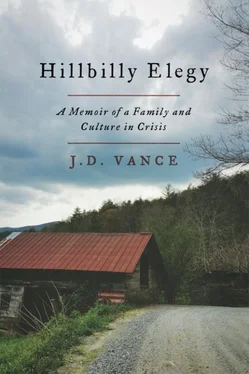
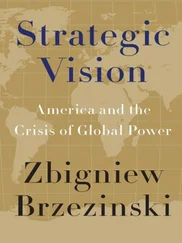


![Джей Вэнс - Элегия Хиллбилли [litres]](/books/399146/dzhej-vens-elegiya-hillbilli-litres-thumb.webp)
